| click on icons for HOME and Session CONTENTS pages |
|
|
||

|
||
|
6. Mending Relationships, Mending the World |
||
| SCRIPT | ||
| click on icons for HOME and Session CONTENTS pages |
|
|
||

|
||
|
6. Mending Relationships, Mending the World |
||
| SCRIPT | ||
[See the Information Sheet for further details about items in red letters.]
NARRATOR
In recent decades, as Jews and Christians have begun conversing with one another, it has become clear that a number of stereotypes remain influential in both communities. Participants in the dialogue suggest that these stereotypes need to be confronted in order to mend the Christian-Jewish relationship.
PROF. LEE
Number one is the degree to which Christians still believe -- and there may be many who do -- that Jews killed Jesus. The second stance that I think is highly problematic is that Judaism of today is somehow the same religion as biblical Judaism which of course discounts all of the centuries of history and the development of the Rabbinic tradition and all of the modern commentary. And then I think to some degree that the third thing is Christians may tend to buy into some of the stereotypes generated in the general society. In fact a recent study by the ADL [Anti-Defamation League] supposedly picked up attitudes such as Jews are dishonest and greedy and power hungry and this and that and the next thing. Now I don’t think that comes out of someone’s being Christian but I think if you have no contact you are liable to absorb that into your stance towards Jews.
RABBI ROSENTHAL
 I think that the Jewish community generally has very little knowledge of
basic Christian theological norms and teachings. Hence, many Jews have incorrect
stereotypes about what Christians really believe. There are Jews who believe, I
think, sincerely that Christians worship idols, because there are statues of
Jesus, or Mary, in churches. Now that’s nonsense, as we know. There are
Jews who believe that Christianity has diluted the teaching of monotheism by its
teaching of the trinity or by its notion of Jesus as God, Son of God, the Word
incarnate, and so on. I think that a greater study of Christianity could
probably dispel many of those misconceptions.
I think that the Jewish community generally has very little knowledge of
basic Christian theological norms and teachings. Hence, many Jews have incorrect
stereotypes about what Christians really believe. There are Jews who believe, I
think, sincerely that Christians worship idols, because there are statues of
Jesus, or Mary, in churches. Now that’s nonsense, as we know. There are
Jews who believe that Christianity has diluted the teaching of monotheism by its
teaching of the trinity or by its notion of Jesus as God, Son of God, the Word
incarnate, and so on. I think that a greater study of Christianity could
probably dispel many of those misconceptions.
FR. SMIGA
I think, probably, the most prevalent one is the notion that somehow Judaism is a religion of legalism, a religion that places emphasis on earning salvation. These ideas really don’t hold up very well when you actually read the Hebrew scriptures and the way that they’re interpreted by Jewish interpreters throughout history.
PROF. KIMELMAN
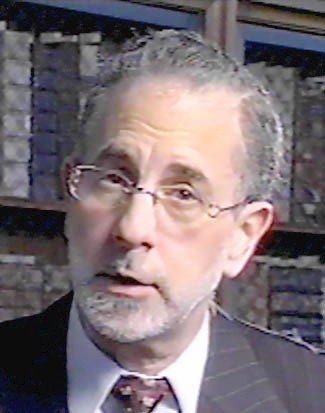 Judaism in the eyes of Christianity, at least since the early interpreters of
Paul has frequently been understood in a dichotomy of x versus z where x is
Christianity is positive and z is Judaism is negative. You can fit into this the
most common [that] is called gospel versus law or law versus love, and the love is the
positive word and the gospel is the positive word and the law is the negative
word. And the word legal is a very positive word in Judaism. It means bound by
law and it means bound by the covenant and it means all aspects of our lives are
subject to God, therefore subject to the covenant and therefore subject to
regulation. This idea of a regulated, law-centered life is not excluding love
and grace, but incorporating love and grace. Maybe one of the most significant
contributions the self-understanding of Judaism can make to Christians is that
these are not dichotomous in the religious life, but they actually converge.
Judaism in the eyes of Christianity, at least since the early interpreters of
Paul has frequently been understood in a dichotomy of x versus z where x is
Christianity is positive and z is Judaism is negative. You can fit into this the
most common [that] is called gospel versus law or law versus love, and the love is the
positive word and the gospel is the positive word and the law is the negative
word. And the word legal is a very positive word in Judaism. It means bound by
law and it means bound by the covenant and it means all aspects of our lives are
subject to God, therefore subject to the covenant and therefore subject to
regulation. This idea of a regulated, law-centered life is not excluding love
and grace, but incorporating love and grace. Maybe one of the most significant
contributions the self-understanding of Judaism can make to Christians is that
these are not dichotomous in the religious life, but they actually converge.
PROF. LEVINE
Many Jews, alas, are convinced that deep down Christianity teaches a hatred of Judaism -- that that hatred, that teaching of contempt is hard-wired into the Christian tradition. So that really when you get deep down in that Christian soul there’s an antisemite lurking.
PROF. LEE
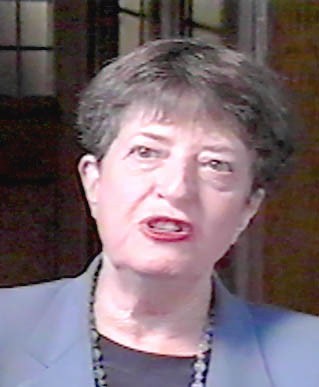 For some time as an educator I have been very concerned that too much of
Jewish self-understanding is built on a sense of being victims because of the
difficulty and the problematics of our history over time. You know there is an
ideology about Jewish history called the lachrymose theory which essentially
says Judaism is a series of tragedies and somehow overcoming them before the
next tragedy. Well if that’s what you learn that the history of your people
has been, a good question is in this open environment why would you want to
remain Jewish? I mean why not flee? I thought it was really important for Jews
to understand their history in new ways. And one of the first barriers is to,
while not dismissing the role of Christians and the Church in persecuting Jews,
to revisit that and understand it in historical context and begin to understand
Christianity in its own terms, on its own terms, not through the lens of
persecution.
For some time as an educator I have been very concerned that too much of
Jewish self-understanding is built on a sense of being victims because of the
difficulty and the problematics of our history over time. You know there is an
ideology about Jewish history called the lachrymose theory which essentially
says Judaism is a series of tragedies and somehow overcoming them before the
next tragedy. Well if that’s what you learn that the history of your people
has been, a good question is in this open environment why would you want to
remain Jewish? I mean why not flee? I thought it was really important for Jews
to understand their history in new ways. And one of the first barriers is to,
while not dismissing the role of Christians and the Church in persecuting Jews,
to revisit that and understand it in historical context and begin to understand
Christianity in its own terms, on its own terms, not through the lens of
persecution.
NARRATOR
If historical stereotypes and religious caricatures persist in both communities, then how is mutual understanding between Jews and Christians to be achieved? The answer would appear to be summed up in one word: dialogue.
PROF. LEVINE
Christians are ignorant about Judaism. Jews are also ignorant about Christianity. Part of our problem is that we don’t talk to each other.
FR. SMIGA
And, I think we’ve been fortunate in the United States to have those kinds of dialogues, and I think we’ve reached a sort of critical mass here now, where people, in fact, are saying, "We need to talk to one another. And we will only really understand ourselves as we understand one another."
RABBI ROSENTHAL
Dialogue is critical to dispel misconceptions, misunderstandings, and prejudices. There are those who are afraid of dialogue because they think dialogue will lead to proselytizing, to conversion. Nonsense. Nonsense. Dialogue, among people who are people of good will and know their faith, their own respective faiths, can only enrich one another and enhance their understanding, build bridges of understanding and destroy walls of suspicion.
PROF. LEE
The greatest barrier is the lack of knowledge in both of our communities of our own traditions. So you can’t have this conversation when neither partner or neither group has anything to say about their own tradition or it’s very superficial. And actually it becomes highly frightening because someone’s liable to ask me a question and I can’t answer it. You have to start by educating people about their own faith tradition before they can enter in a conversation about someone in another faith’s tradition.
SR. BOYS
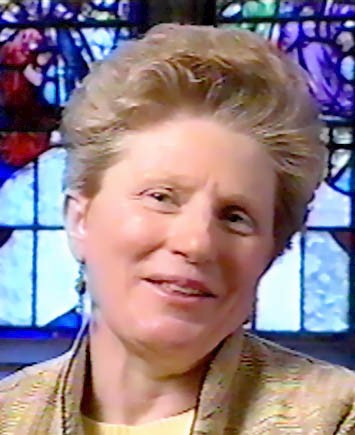 I’ve had the privilege of working with Jews for probably a quarter century
now and one of the great privileges has been that it has taught me so much
about, and forced me to learn about my own Catholic Christian heritage. So it’s
been tremendous. Dialogue is a tremendous stimulus to deepened education. So
therefore I think for every Christian it’s both an obligation of justice to
repair this relationship we have with Jews, but it’s also this great
contributor to a deepened Christian commitment, certainly to a greater
knowledge.
I’ve had the privilege of working with Jews for probably a quarter century
now and one of the great privileges has been that it has taught me so much
about, and forced me to learn about my own Catholic Christian heritage. So it’s
been tremendous. Dialogue is a tremendous stimulus to deepened education. So
therefore I think for every Christian it’s both an obligation of justice to
repair this relationship we have with Jews, but it’s also this great
contributor to a deepened Christian commitment, certainly to a greater
knowledge.
NARRATOR
Through dialogue, Christians and Jews can begin to correct stereotypes and misperceptions about each other. But what are the most important things that each needs to learn about the other?
PROF. LEVINE
One of the things I think Christians need to know about Judaism is that Judaism -- as in antiquity, so today -- is a remarkably diverse tradition. So that even if you know what one Jew believes and how one Jew practices that may not tell you a thing about what that Jew’s mother or son or neighbor fellow Jew believes or practices.
SR. BOYS
I would want Jews today to know, among other things, that the movements that are being made in the churches -- and I’ll speak specifically as a Catholic Christian -- are movements in which we not only desire in the abstract to reconcile with Jews, but that we are committing resources. We are committing our energies. We are committing our learning, precisely to move this reconciliation forward. That this is not a matter of something that comes from the Pope, that will be changed if a new Pope comes in, but this is really a groundswell from the bottom up as well as from official levels of the church. And that, yes, much had been done in the past that brings great shame to the people who are called Christians, but that we have a resolve in our time that we will have a very different future from the history we have had.
RABBI ROSENTHAL
I would like my Christian brothers and sisters to know that Judaism believes in some of the basic principles that Christians cherish. We believe in monotheism, one unique God. We believe in a common humanity that comes and stems from our common ancestors. Therefore all men and women, all races and creeds, all nationalities and ethnic groups, are brothers and sisters and equal in the sight of God; that none is superior to the other, none inferior to the other. We maintain a hope that, despite all evidence to the contrary, despite the depravities and insanities of the present throughout the world, we maintain hope in the future. For us, that’s Messianic fulfillment, and that’s something that we Jews believe in fervently. It’s kept us going for a long time under some pretty awful circumstances.
FR. SMIGA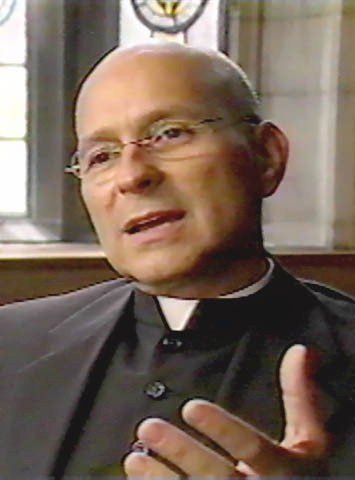
I would say that, what I would hope that Jews would see in Christians is us at our best. And at our best, we believe in the God who created us all, who loves all, who calls us to moral responsibility, and who wants the creation that God has made to really merge into the Kingdom of God. Both Jews and Christians believe in the coming kingdom of God in different ways.
NARRATOR
The Kingdom of God is a foundational concept shared by Jews and Christians. It is the final destiny of everything. It is when all of creation exists according to God’s will. The hope for the coming of God’s Kingdom points the way to collaborative efforts by Christians and Jews in the future.
SR. BOYS
In the scriptures of Jews, Isaiah uses the notion to be a light unto the nations. And I think since Jesus also works with this metaphor of light -- not hiding our light under a bushel basket, being the light of the world -- it seems to me is one of the things we share is this obligation to live in such a way that we are a light of justice to other peoples. That we have both failed in this, there is no question, but I think that is the call.
RABBI ROSENTHAL
I think that Jews and Christians share a common mission of improving society, because the commandment of mending the world, l’takkein olam, is incumbent upon Christians as well as Jews. We share that common mission. I think that in that sense, absolutely, we share a social justice mission to make this society, America, a better society, to make this world of ours a better world, to loose the bonds and feed the hungry, and clothe the naked, and shelter the homeless.
PROF. LEVINE
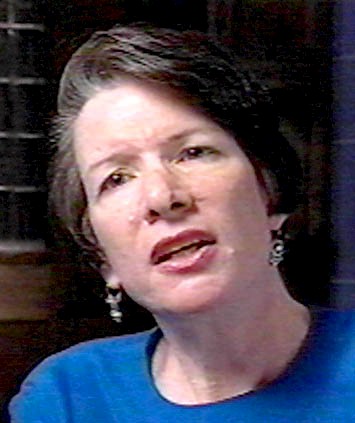 We Jews talk about halakhah; it comes from the Hebrew halakh,
meaning to walk or to go. It’s the path that we follow as we live out God’s
will. The early Christians who of course are all Jews use the Greek term hodos
and we would know this term today from odometer, right. It’s the way, as
it’s translated in the Book of Acts, the path one follows. So as Jews follow halakhah
and Christians follow hodos, we are both each following our way. But in
fact we started in the same place and we’re looking to finish at the same
place as well because those paths both lead to the kingdom of God. Those paths
both lead to Shalom and ultimately, I think to unity, not only of Christians and
Jews, but to all of God’s children.
We Jews talk about halakhah; it comes from the Hebrew halakh,
meaning to walk or to go. It’s the path that we follow as we live out God’s
will. The early Christians who of course are all Jews use the Greek term hodos
and we would know this term today from odometer, right. It’s the way, as
it’s translated in the Book of Acts, the path one follows. So as Jews follow halakhah
and Christians follow hodos, we are both each following our way. But in
fact we started in the same place and we’re looking to finish at the same
place as well because those paths both lead to the kingdom of God. Those paths
both lead to Shalom and ultimately, I think to unity, not only of Christians and
Jews, but to all of God’s children.